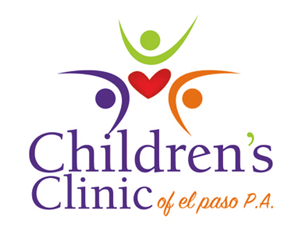ADHD/ADD Evaluations
ADHD Evaluation in El Paso, TX
ADHD is a condition that can negatively impact a person’s attention and behavior and can interfere with daily activities at school, at home, at work, or with friends. People who have ADHD have higher levels of inattention, impulsivity, and/or hyperactivity than their peers. Our pediatricians at Children's Clinic of El Paso offers comprehensive ADHD evaluations in El Paso, TX.
What to Expect During Your Child's ADHD Evaluation
- An initial meeting with you and your child: This step will help identify your child’s strengths and challenges. We will look at challenges in the three key areas of home, school, and social relationships. It’s important to talk about your child’s strengths, interests, and passions as well
- Detailed health information: Your doctor will ask about any developmental milestones, allergies, appetite, sleep patterns, and previous medical problems
- Checking how your child is doing in school: We will look at report cards and teacher evaluations
- Making sure official criteria for diagnosis are met: People of different ages need to have a certain number of symptoms to get an ADHD diagnosis
- A follow-up meeting: This is to go over the results and explore possible treatments. Your pediatrician might talk about changing family routines and getting support at school
The first step in treating ADHD in your child is getting a diagnosis from their pediatrician. Once a diagnosis is made, we develop a plan by making treatment recommendations and collaborating with other professionals and important adults in your child’s life. In most cases, ADHD is best treated with a combination of medication and behavior therapy, such as limiting the amount of daily screen time, developing healthy eating habits, and participating in physical activities. Following this treatment plan reduces your child’s symptoms.
For more information about ADHD evaluations in El Paso, TX, contact Children's Clinic of El Paso today. You can reach us in our Eastside office at (915) 592-2600 or our Westside office at (915) 544-2225 to schedule an appointment!
Evaluation And Diagnosis of Symptoms
ADHD FAQs
Our trained professional staff will do the initial evaluation if you think your child is having problems with focusing and attention. We also continue to treat your child after the initial diagnosis has been made.
The ultimate goal in the treatment of ADHD/ADD is to make your child as successful as possible in all aspects of his/her life.
What is ADHD?
Children with attention-deficit hyperactivity disorder or ADHD have differences in their brains than those who don’t have ADHD. Certain areas of their brain may mature more slowly. Additionally, children with ADHD have imbalances in neural networks and neurotransmitters, the chemicals that nerves use to communicate.
Knowing that ADHD has a neurological basis is important because it helps parents understand that their child isn’t disobedient or oppositional on purpose. Instead, children with ADHD need help to learn to control their behavior.
The brain differences are also important because they occur in specific areas responsible for skills such as self-regulation, organization, working memory, problem-solving, reasoning, and time perception. The brain areas affected determine your child’s ADHD symptoms.
What symptoms develop due to ADHD?
ADHD symptoms fall into three categories: inattentiveness, hyperactivity, and impulsivity. Some children may only struggle with inattention, while others have trouble with two or three categories.
Each child has a different range and severity of symptoms. However, their symptoms are severe enough to affect their performance at school, at home, and when socializing.
When children struggle with inattention, they:
- Can’t pay attention at school or while playing
- Have difficulty organizing tasks
- Avoid tasks requiring mental effort
- Lose important items
- Forget to do homework and chores
When children struggle with hyperactivity and impulsivity, they:
- Fidget, squirm, or get out of their seat during class
- Run or climb when it’s inappropriate
- Talk excessively and interrupt conversations
- Have a hard time waiting for their turn
- Act or speak without thinking
Children and adolescents with ADHD also have problems with working memory. Working memory allows them to hold several pieces of information in their head long enough to use them to plan, do calculations, or to coordinate one activity with another.
How do you diagnose and treat ADHD?
To evaluate and diagnose ADHD, our professional team use tools such as a checklist of symptoms, talking with parents and children about their challenges, and questionnaires completed by parents and teachers. Your child also has a thorough physical exam to be sure another problem is not the cause of their symptoms.
Once your child has an ADHD diagnosis, their pediatrician at our office prescribes treatment and schedules regular follow-up appointments to monitor their progress.
Your pediatrician may recommend conventional and/or holistic treatments, depending on each child’s needs. For example, your child may improve with a combination of medication, dietary changes, and behavioral support.
If you or your child’s teacher are concerned about your child’s inattentive, hyperactive, or impulsive behaviors, call our office to schedule an ADHD evaluation.

